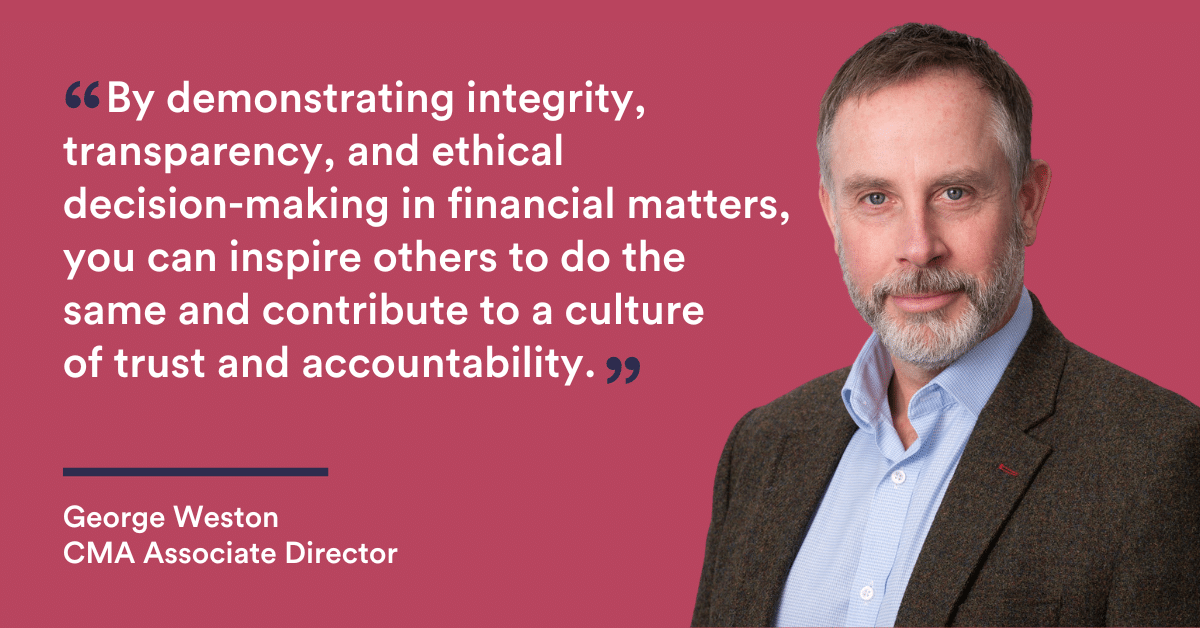Culture, Strategy and the Role of the CFO

As a Chief Financial Officer (CFO), you have a significant role in shaping and influencing the culture of an organisation. While culture is often associated with the responsibility of HR or the CEO, the CFO can play a crucial part in fostering a positive culture. CMA Associate Director George Weston explores how the CFO can effect positive change on an organisation’s culture.
A strong culture can shape an organisation’s strategic choices and execution. For example, an innovative and risk-taking culture might lead to a strategy focused on disruptive product development. Conversely, strategy can also influence and shape the organisation’s culture. A strategic change initiative may require a shift in cultural norms and behaviours to support the desired outcomes.
Alignment between culture and strategy
When culture and strategy are aligned, organisations can experience enhanced performance, adaptability, and employee engagement. However, misalignment between culture and strategy can create challenges. If the culture does not support or align with the strategic goals and initiatives, it can impede implementation and hinder organizational effectiveness.
As a senior leader in the organisation, your actions set the tone for others. By demonstrating integrity, transparency, and ethical decision-making in financial matters, you can inspire others to do the same and contribute to a culture of trust and accountability.
How can CFOs action change in culture?
Establish clear values and communicate these
CFOs should work with the CEO and other leaders to establish clear organisational values and ensure that financial goals and strategies are aligned with these values. Communicate this across the organisation and highlight how the organisation’s culture influences financial outcomes. For instance, emphasise how a positive and inclusive culture can lead to higher employee engagement, productivity, and customer satisfaction, ultimately impacting the bottom line.
Reward and incentivise
Partner with HR to ensure that financial policies and practices support the desired culture. Work together to design compensation and incentive structures, incorporating cultural metrics into performance evaluations, which reward behaviours aligned with the cultural values of the organisation.
Promote employee wellness
It is also essential to recognise the importance of employee well-being and consider the financial implications of promoting a healthy work-life balance. Support initiatives such as flexible work arrangements, wellness programs, and professional development opportunities that contribute to a positive work culture.
A thoughtful and deliberate approach
For the CFO to support the creation of a successful organisation, they need to consider both culture and strategy. They must play an active role in shaping the culture to support the desired strategic objectives and ensure that the strategy is aligned with the existing culture or can be adapted in a way that the culture can embrace. A thoughtful and deliberate approach to managing culture and strategy can contribute to the long-term success and sustainability of the organisation.


